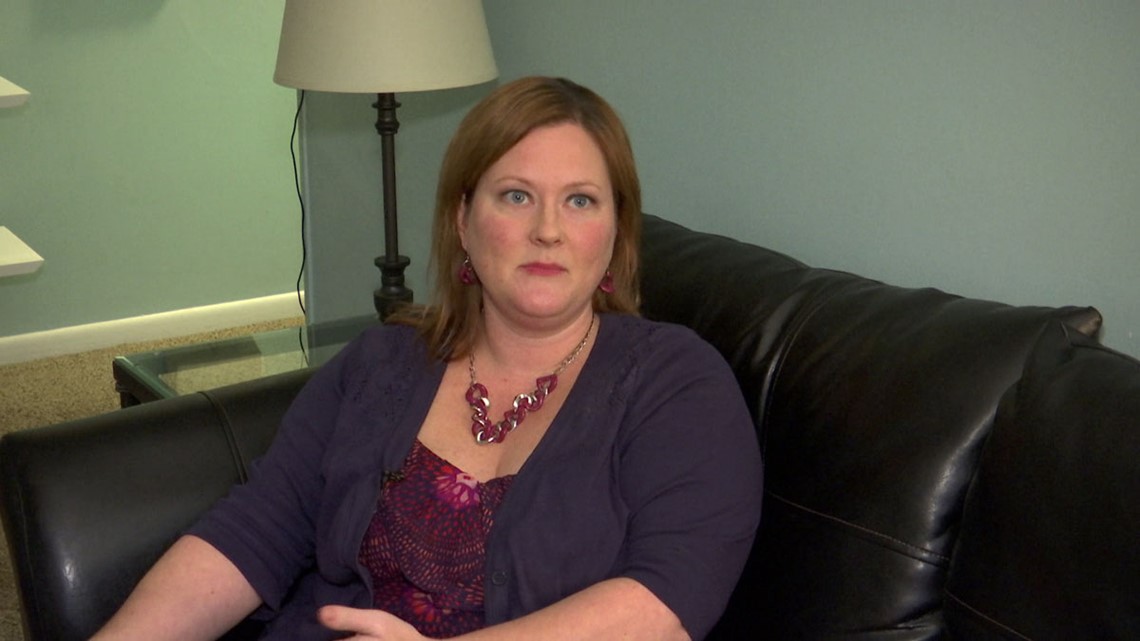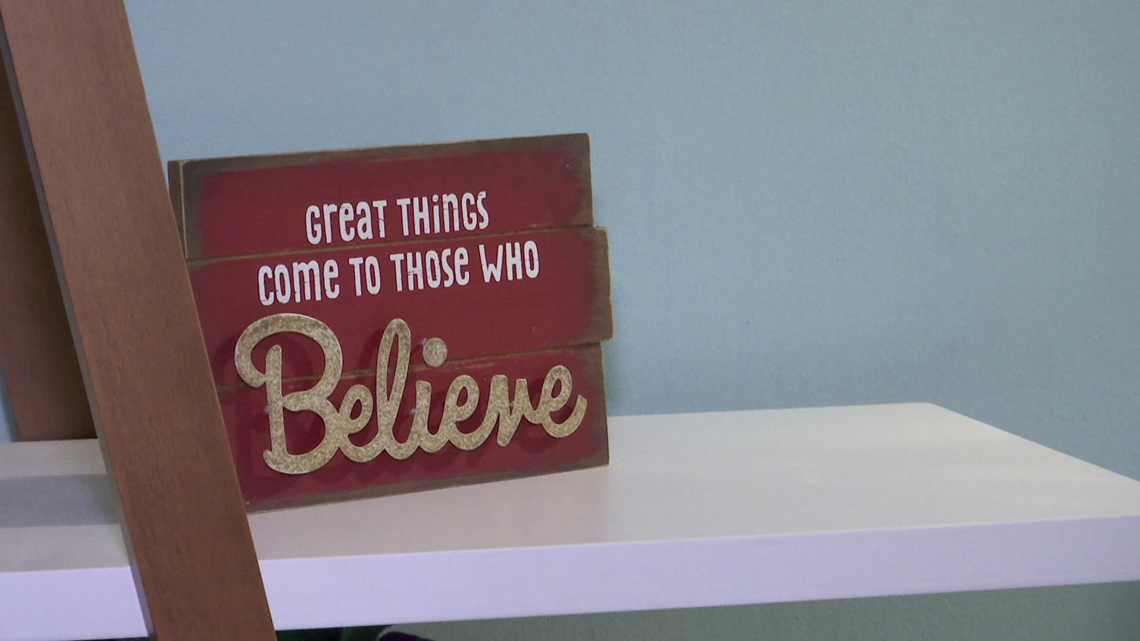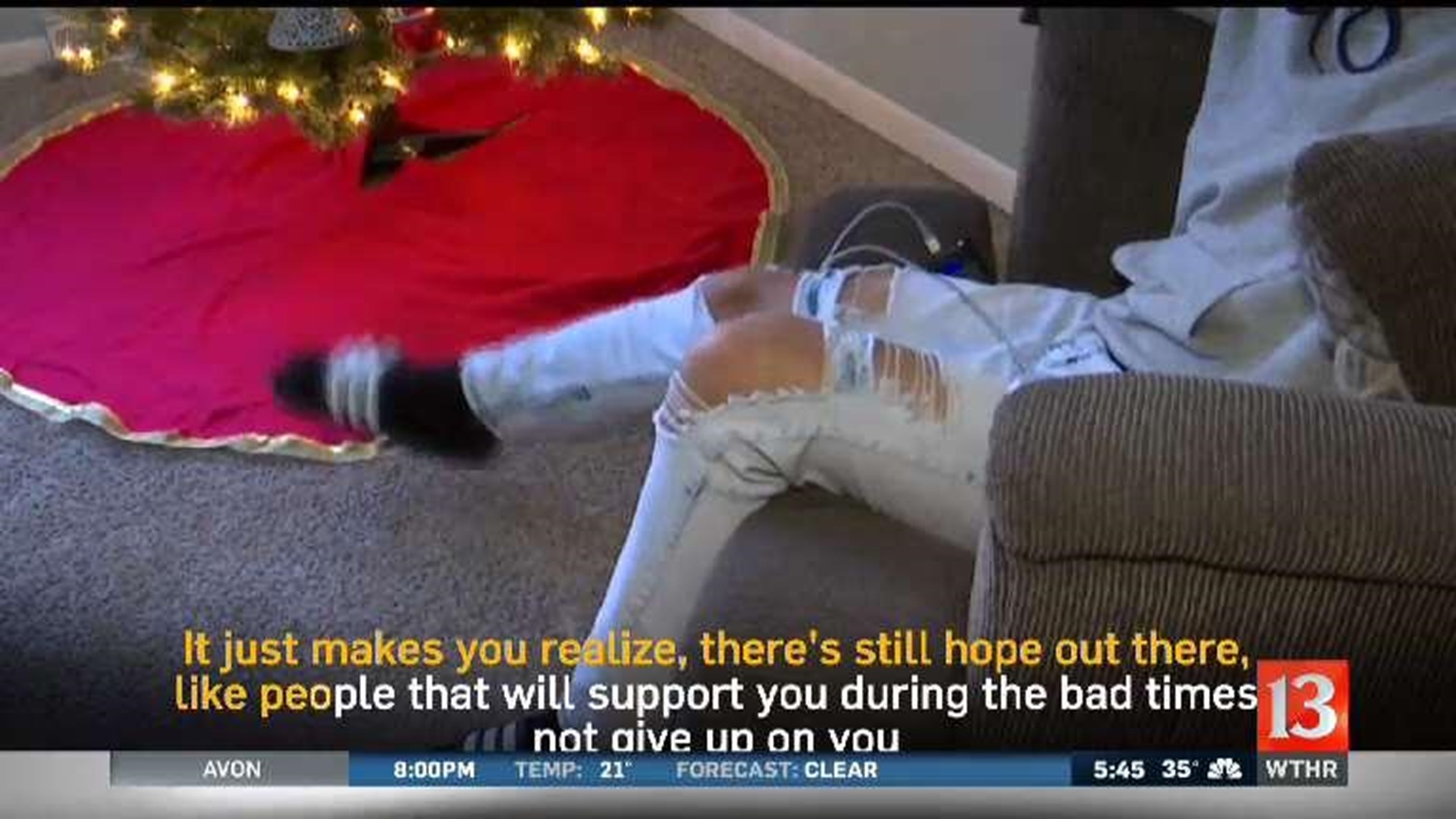MARION COUNTY, Ind. (WTHR) — The beds in the StopOver transitional house are much more than a safe place for many teens and young adults who reside here.
“I have somewhere to go when everyone else gives up on me,” said 17-year-old Symere.
Throughout his teen years, Symere spent two stays in emergency housing.
“When I was 14, I was here for like two weeks at the emergency shelter. And then I left and came back when I was 15 and stayed at the emergency shelter,” he said. He doesn’t recall how he first learned of emergency housing.


StopOver Program Director Courtney Modisette said emergency shelter is just one of the ways they support homeless youth in Marion County.
“We have a 24-hour hotline we’re available at all times. For emergency shelter ages 12 to 17 all that’s needed is an emergency phone call — quick phone call. This is what’s going on at home. I’ve been kicked out can somebody help me. We’re going to do our best, if we have a bed we’ll take them. If not we’ll refer them,” said Modisette. She said that emergency shelters do not have to immediately notify guardians where the child is, but if police are notified that a child is missing, StopOver will update law enforcement that the child is safe.
“StopOver is a resource for homeless, and at risk of homeless youth. We serve ages 12 to 21. We have emergency shelter for 12 to 17. And then we have transitional living for 17 to 21,” said Modisette.
The transitional housing program is one that young adults and teens must apply for via the StopOver website.
The “transitional living program is an 18-month program," ,” said Modisette. "They can stay up to 18 months max. We work on their goals whether their short term or long term. We encourage them to go to school or training and then we encourage them to gain employment and save 50 percent of their checks. Now some of our kiddos, or youth, are in high school. I have one in high school focusing, so a job, she doesn’t need to focus on that. Right now, we’re focusing on getting her to graduate so each one has an individual plan."
Symere said the facility provides guidance for him.
“It’s a lot of structure you can’t just do whatever, you can do whatever you want basically as long as it’s legal and not disrespectful,” said Symere.
Modisette said living with the kids for 18 months really allows her the chance to get to know them and work with them.


“These children and young adults they need love and help,” she said.
She said homelessness among teenagers, kids and young adults is on the rise locally.
“There has been a steady increase of homelessness youth in Marion county. We’re working with several other organizations to find out how can we end youth homelessness,” Modisette said.
StopOver has long been one of two emergency shelters, and the only transitional youth housing program in the city. A second youth transitional home program is set to open in Marion County this month. And Modisette said more facilities are needed.
“During the snow season and the weather our phone blow up. Cuz a lot of times the young adults in youth will sleep in abandoned buildings, in the park, or in front of libraries,” Modisette said.
She says it's the weather that makes the phone rings not the holidays. Modisette said it often depends on the child, but a lot of families will allow their kids to come home for the holidays for a few days and then tell them “Christmas is over, see you next year.”
She said that exposes children to “secondary trauma,” and that at StopOver they see the impact of that secondary trauma when the teens return to transitional housing.
But Symere said he looks forward to returning to StopOver after he spends the holidays with his mother.
It’s like “having a second family really, that’s the only way I can put it,” said Symere.
“It just makes me feel like I’m not leaving my family because I’m coming back to another family,” he added thoughtfully.
Modisette said there are two main contributing factors to youth homelessness. One of them is drug use. Modisette said it leaves guardians and parents unable to effectively take care of their children.
The other is more common among older teens.
“What I see a lot of time a lot of times is if a youth has families once they turn 17 or 18, especially 18 families go ‘you’re an adult, have fun.’ And a lot of them have gone through trauma and have not learned those independent living skills,” said Modisette.
“And these children and young adults they need love and help,” she added.
The former DCS worker said it’s in her nature to want to help these children and guide them.
“The difference between helping and fixing. Is fixing is trying to change them by helping them we are guiding them down the path. And this population is going to make mistakes, I make mistakes all the time,” said Modisette.
Symere says knowing someone has his back at all times makes all the difference.
“Just makes you realize there are people out there. There’s still hope out there. Like people will still support you through your bad times. And not give up on you,” said Symere.
Symere said knowing someone is going to be there for him, even when he makes mistakes, makes him believe that “there’s always hope.”
It’s one of the reasons he said he wants to be a mentor.
“(I want to) help people like me. Because I don’t want to see any young kids go through stuff, that I went through just like foster care system and stuff like that,” he said.
He says he’s grateful that StopOver helped him continue his studies and get a job, because it’s something he believe he wouldn’t have been able to do on his own.

